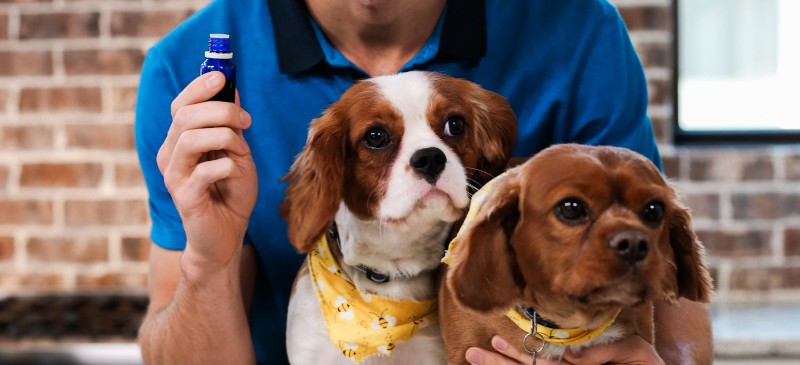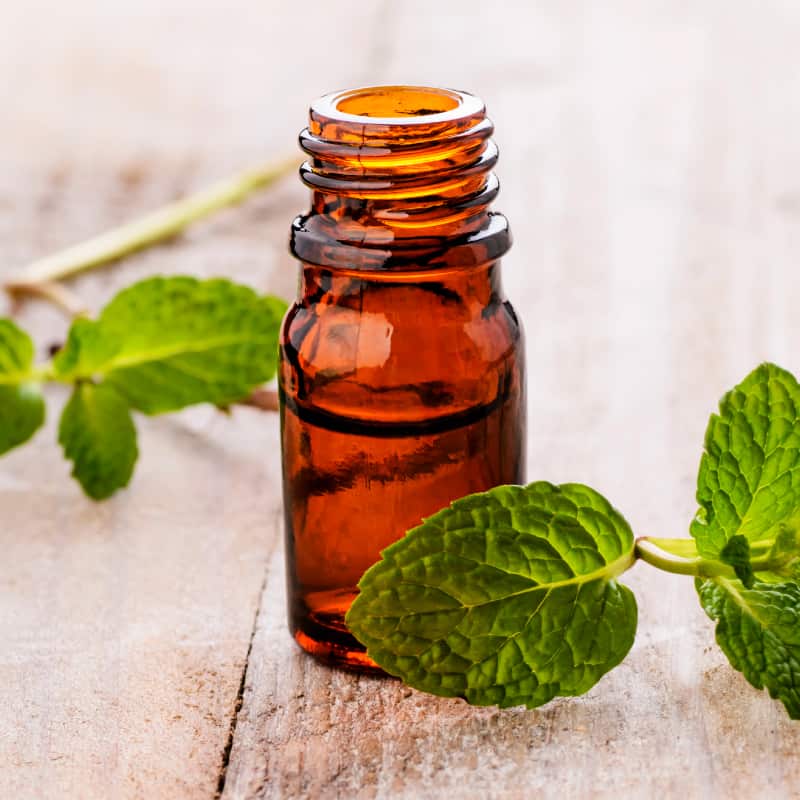This Dr. Axe content is medically reviewed or fact checked to ensure factually accurate information.
With strict editorial sourcing guidelines, we only link to academic research institutions, reputable media sites and, when research is available, medically peer-reviewed studies. Note that the numbers in parentheses (1, 2, etc.) are clickable links to these studies.
The information in our articles is NOT intended to replace a one-on-one relationship with a qualified health care professional and is not intended as medical advice.
This article is based on scientific evidence, written by experts and fact checked by our trained editorial staff. Note that the numbers in parentheses (1, 2, etc.) are clickable links to medically peer-reviewed studies.
Our team includes licensed nutritionists and dietitians, certified health education specialists, as well as certified strength and conditioning specialists, personal trainers and corrective exercise specialists. Our team aims to be not only thorough with its research, but also objective and unbiased.
The information in our articles is NOT intended to replace a one-on-one relationship with a qualified health care professional and is not intended as medical advice.
Essential Oils for Pets: The Best & Worst Oils to Help Your Furry Friends
October 20, 2018

Essential oils are naturally occurring, volatile aromatic compounds that come from the seeds, bark, stems, flowers and roots of plants. If you’ve used them before, I’m sure you’re already familiar with how incredibly potent, fragrant and beneficial they can be to your health, but have you ever tried essential oils for pets?
According to the American Kennel Club, “Preliminary research suggests that these potent oils may have some health benefits for dogs and humans, and many holistic veterinarians incorporate essential oils into their practices.” Many pet owners today are turning to essential oils for a variety of health concerns in their pets, including flea and tick prevention, skin issues, and behavior problems like anxiety. (1)
While using essential oils for pets is known to have its benefits, it’s vital to know which oils are safe to use, how to use them, and to remember that, like people, each animal is different and may react uniquely to a particular essential oil. Similar to the use of oils with children, it’s absolutely crucial to remember that a little goes a long, long way with pets.
Are Essential Oils Safe for Pets?
If you’re wondering about the safety of essential oils for pets, the answer is that some essential oils are considered OK for use with pets. There are a good amount of essential oils that have been deemed safe and, even better helpful, to pet health. However, there are also many essential oils toxic to dogs and cats (and animals in general), which I will talk about later in this article. But first, are you ready to learn all about the best essential oils for pets, specifically dogs and cats?
Essential Oils for Pets: 5 Best Oils + Uses for Dogs
What essential oils are OK for dogs? The following oils are not only OK for dogs, but they’re also known to have some really impressive potential benefits!
Below is a short list of essential oils that experts say are safe to use on dogs:
1. Lavender Oil
Lavender oil is a popular choice among humans so maybe you already have this incredible essential oil on hand for your furry friend. If you’re looking for essential oils for dog odor, lavender is a great scent that pet owners tend to love too. Plus, studies demonstrate lavender’s amazing helpful effects on cases of PTSD as well as its anti-anxiety ability, so it will likely calm both you and your pet. (2, 3)
For pets like dogs, lavender essential oil’s calming effects can be very helpful for anxiety (often induced by visits to the vet or car rides), car sickness or sleep troubles. A 2006 clinical trial looked at the effects of lavender essential oil on 32 dogs with a history of travel-induced excitement in their owners’ cars. What did they find? The dogs exposed to the scent of lavender oil spent a significant amount more time resting and sitting and a lot less time moving around and vocalizing. Overall, the researchers conclude, “Traditional treatments for travel-induced excitement in dogs may be time-consuming, expensive, or associated with adverse effects. Aromatherapy in the form of diffused lavender odor may offer a practical alternative treatment for travel-induced excitement in this species.” (4)
Lavender oil is a great topical remedy for canine skin concerns like allergies and burns. It’s also a common choice of essential oils for dog wounds and essential oils for dogs itching. (5)
2. Peppermint Oil
You may already be familiar with this popular, refreshing essential oil. Will peppermint oil hurt dogs? Peppermint is one of the top recommended essential oils to get rid of fleas in dogs. You’ll actually find peppermint as one of the more commonly used essential oils for dog flea repellent for sale in pet shops and online today.
According to Dr. Janet Roark, a veterinarian and the owner of Hill Country Mobile Veterinary Service in Austin, Texas, “Peppermint essential oil can be used to cool sore muscles, energize tired animals, and soothe upset stomachs. It refreshes the air when diffused and can freshen breath with taken internally. This oil can open the airways and promote a healthy respiratory tract, as well as soothe aching joints.”
As an energizing oil, it can be a great mood booster for animals too. Roark, who is also known as the “Essential Oil Vet,” instructs that peppermint oil is best used topically with dogs. (6)
The American Kennel Club has a great essential oil dog shampoo recipe that includes several recommendations for essential oils for dog fleas prevention, including peppermint. Check out it Flea-Repellent Dog Shampoo with Essential Oils, which includes simple ingredients you may likely have on hand already. Using a shampoo like this regularly is the perfect way to use essential oils to kill fleas on dogs.
3. Chamomile Oil
Roman chamomile oil is a well-known anti-inflammatory that is a great choice for both humans and dogs alike if the problem is a skin irritation, burns, wounds, ulcers or eczema. (7, 8) This is a very gentle essential oil that can also help calm a stressed-out dog. (9)
If you’re looking for essential oils recipes for dogs using chamomile oil, check out this super easy Calming Spray Recipe that also includes lavender oil.
4. Frankincense Oil
Can you use frankincense oil for dogs? For most dogs, the answer is “yes!” In fact, Dr. Richard Palmquist, chief of integrative health services at Centinela Animal Hospital in Inglewood, Calif., says that using frankincense oil in some cases of cancer and tumors can be very helpful. (10) The use of frankincense oil in pet cancer isn’t that surprising when you consider that research has shown the powerful potential for frankincense oil to help fight some forms of human cancer, including bladder cancer. (11)
Frankincense oil is known to have potent antimicrobial abilities, making it a great choice for germ fighting and immune boosting too. (12) Research using animal models (mice) also shows that this ancient oil has powerful anti-depressive effects. (13)
5. Cedarwood Oil
According to Dogs Naturally Magazine, cedarwood oil (Cedrus Atlantica or Cedrus deodara) is a terrific natural pest repellent. Cedarwood essential oil when used in dogs also can act as an antiseptic for the lungs, expectorant for coughs (like kennel cough), circulation stimulator (making it helpful for bodily pains and arthritis), hair growth booster and dandruff reducer, diuretic, and a general calming agent that can help with behavior concerns like shyness or nervous aggression. (14)

Essential Oils for Pets: 5 Best Oils + Uses for Cats
What are some of the best essential oils for cats?
According to Palmquist, the following oils can typically be safely used with cats (and dogs) on a short-term basis: (15)
1. Spearmint Oil
Somewhat similar to peppermint oil in terms of its scent and uses, spearmint oil can really come in handy with cats for a lot of different concerns, including nausea and diarrhea. For overweight cats, some vets use spearmint oil to balance the metabolism, and in felines with gastrointestinal problems, the oil can be used to improve unwanted symptoms. Like most essential oils, spearmint oil should be diluted before application.
2. Frankincense Oil
According Palmquist, frankincense essential oil has shown itself to be helpful in some cases of cancer. He’s also seen it reduce tumors and external ulcers. Frankincense oil may also boost blood supply to the brain, but it may make high blood pressure worse too so be careful when using it. You can check with your vet, but it’s probably best to refrain from using this oil if your cat has a history of hypertension.
3. Cardamom Oil
Just like with humans, cardamom oil is a great digestive aid for pets. It can help ease heartburn while also encouraging a healthy appetite level. It also has natural antimicrobial properties and can be helpful for coughs.
4. Helichrysum Oil
Helichrysum essential oil has many benefits to pets thanks to its anti-inflammatory, antioxidant, antimicrobial, antibacterial and antifungal properties. (16) For pets, it’s excellent for decreasing bleeding due to accidents and for general skin rejuvenation as well. Helichrysum oil is also used to support the nervous system and boost heart health.
5. Fennel Oil
Fennel essential oil has a sweet smell similar to licorice and is commonly employed to treat digestive issues in humans. In cats, it may be able to help balance the pituitary, thyroid and pineal glands. If your cat has a buildup of fluid and/or toxins in its tissues, topical application of diluted fennel may help break up that unhealthy buildup and get things back to normal.
How to Use Essential Oils for Pets
You should only use 100 percent pure essential oils for pets and always dilute them before application unless otherwise directed by your veterinarian. How much oil should you use? Recommendations vary, and you should ask your vet if you’re feeling unsure, but a safe bet is starting with a single drop of essential oil in 50 drops of carrier oil, such as coconut, olive or almond oil. Another recommendation is to use three to six drops of essential oil(s) to one ounce of carrier oil.
Of course, it’s important to adjust the amount of oils you use depending on your pet’s size and age. Use less of a diluted oil with smaller dogs and cats, as well as puppies, kittens and senior pets.
To enable your pet to benefit from the scent of essential oils, put one to two drops of essential oil in a diffuser and allow the aroma to permeate the living space for 10 to 15 minutes.
Here is some caution with using essential oils with cats or dogs:
- Be familiar with your pet’s health status, and check with your vet to make sure no essential oils are contraindicated for your pet due to its breed or a health condition.
- Observe your pet’s reaction to essential oils, and stop using them if you observe any adverse reactions.
- Never use essentials oils for pets around delicate areas, including the eyes, ears, nose and genitals.
- Do not add essential oils to your pet’s food or drinking water unless instructed to by your vet.
- Do not use essential oils with puppies under 10 weeks of age.
- Do not use oils on epileptic pets who are prone to seizures.
- If your pet is pregnant or nursing, check with your vet before using any essential oils and be especially careful with introducing her to essential oils (that includes your own use in her vicinity).
More Precautions, Including Oils to NEVER Use for Pets
To be on the safe side, you can always talk to your veterinarian before using essential oils for animals. Cats are especially at risk for essential oil reactions. It’s vital that you choose 100 percent pure, therapeutic-grade and certified USDA organic essential oils free of adulterants and additives for use with your pets.
Both cats and dogs have very sensitive senses of smell so essential oils should always be used in extremely small amounts and diluted with a carrier oil. It’s also important to remember what oils you can and cannot use in an oil diffuser around your pet. When using aromatools like a diffuser, make sure to provide an escape route so your dog or cat doesn’t feel trapped. It’s also not recommended to force the use of any oils on pets when they clearly do not like them.
The list of toxic essential oils varies between cats and dogs. It’s also important to remember that each pet can react differently to certain essential oils and could have a negative reaction even if the oils aren’t on this list below. The following two lists are not exhaustive but include some common essential oils known to be problematic for dogs and cats.
Which essential oils are toxic to dogs? Essential oils that are toxic/NOT recommended for use with dogs: (17)
- Clove
- Garlic
- Juniper
- Rosemary
- Tea Tree
- Thyme
- Wintergreen
Which essential oils are toxic to cats? Essential oils that are toxic/NOT recommended for use with cats:
Some pet owners may be interested in trying essential oils with other furry friends so this is another helpful essential oils guide for animals in general below.
30 Essential Oils You Should Never Use on Any Animal: (18)
- Anise
- Birch
- Bitter Almond
- Boldo
- Calamus
- Camphor
- Cassia
- Chenopodium
- Clove
- Garlic
- Goosefoot
- Horseradish
- Hyssop (Hyssopus sp. with the exception of Decumbens)
- Juniper (Juniperus sp. with the exception of Juniper Berry)
- Mugwort
- Mustard
- Oregano
- Pennyroyal
- Red or White Thyme
- Rue
- Santolina
- Sassafras
- Savory
- Tansy
- Tea Tree
- Terebinth
- Thuja
- Wintergreen
- Wormwood
- Yarrow
How do you apply essential oils to dogs and cats? According to Dog Oiler, the best carrier oil to use in combination with essentials oils for your pets is coconut oil. (19) Not only does the use of a carrier oil like coconut reduce the likelihood of skin irritation, but it’s also helps to nourish your pet’s skin — plus research has shown it has helpful antifungal properties. (20)
According toPalmquist, “To reduce the chances of sensitivity and organ toxicity, we generally use an oil for no more than two weeks and then provide a rest period. Under certain circumstances — like in the treatment of cancer — we will use oils for longer periods, but this is something best left to those trained in the use of oils.” (21)
Signs and symptoms of essential oil poisoning in pets can include: (22)
- Difficulty breathing
- Drooling
- Lethargy or weakness
- Muscle tremors
- Pawing at the mouth or face
- Redness or burns on the lips, gums, tongue or skin
- Trouble walking or an uncoordinated gait
- Vomiting
Always store essential oils out of the reach of pets and children. If you suspect that your pet has been poisoned by essential oils, immediately contact your veterinarian or the 24/7 Pet Poison Helpline (855-764-7661). Bring the suspected essential oil offender with you to the vet in a sealed container. Seeking treatment as quickly as possible will typically lead to a better outcome for your pet. If you believe your pet swallowed the oil, inducing vomiting or giving activated charcoal are not recommended as this may make the situation even worse.
Final Thoughts on Essential Oils for Pets
- You can use certain essential oils for pets safely to boost their physical as well as emotional well-being, while there are other oils that you specifically should not use with dogs and cats or animals in general.
- What essential oils are good for dogs? Some top choices include lavender, chamomile, frankincense and cedarwood. Peppermint is also a top choice of essential oils for dogs fleas.
- What essentials oils are helpful to cats? Beneficial oils for cats include spearmint, frankincense, cardamom, helichrysum and fennel.
- It’s vital that you choose 100 percent pure, therapeutic grade and certified USDA organic essential oils for pets.
- There are many important cautionary tips to know before using essential oils for pets, and it’s also important you include your vet on essential oils for pets choices, especially if your pet is very young, old or has an ongoing health concern.








